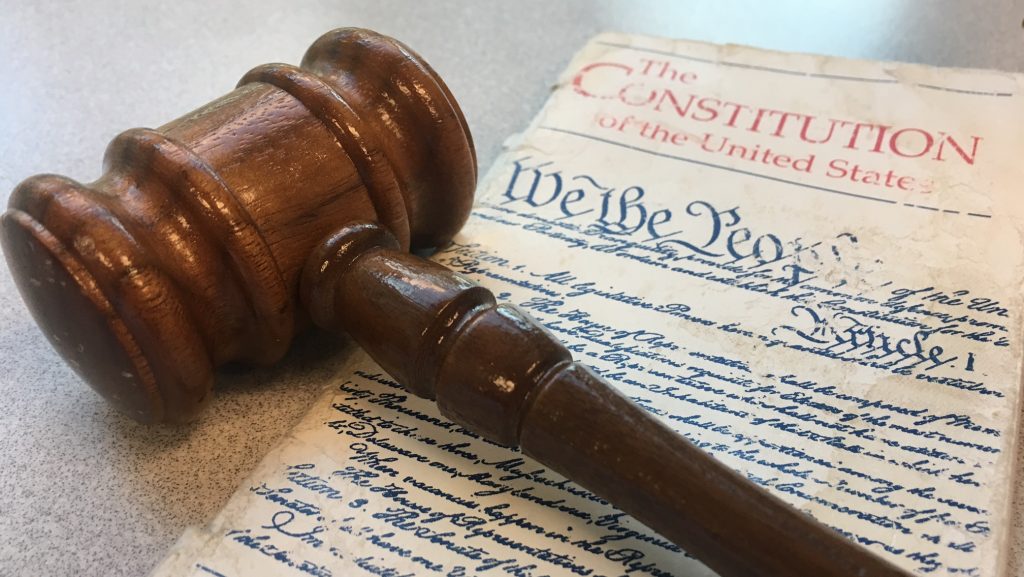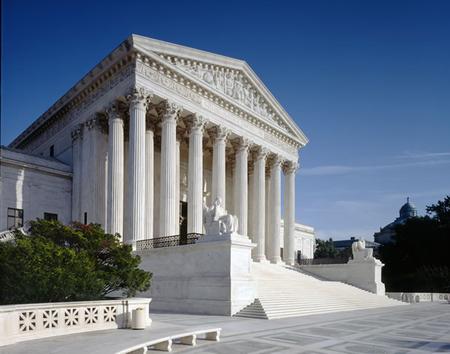What’s the Future of the Supreme Court and Roe v. Wade?
A look at the possible influence of Trump nominee Judge Brett Kavanaugh on the U.S. Supreme Court.

The first 10 amendments of the U.S. Constitution are known as the Bill of Rights.
Brett Kavanaugh, a federal appeals court judge in Washington, is President Donald Trump’s pick to replace Justice Anthony Kennedy on the U.S. Supreme Court.
Exactly no one should be shocked by Trump’s pick of Kavanaugh. He’s a Yale grad, which would make him the 11th justice in history from that school. He is a judge on the federal court of appeals for the D.C. Circuit, which is where three other current justices came from and many others in history.
That doesn’t mean, though, that he’ll have an uncontested path to confirmation.
Many Democrats are already decrying Kavanaugh’s nomination, because of the conservative approach to judging he espouses, and particularly because of his presumed opposition to Roe v. Wade, the 1973 abortion ruling.
Meanwhile, many conservatives are happy with the idea of Kavanaugh on the court — but not all. Some believe his rulings on some Obama-era regulations were too favorable.
Both sides in Washington have invested a lot in the idea of controlling the courts as a means of controlling political outcomes. And without question, right now at least, Republicans are winning, having prevented President Barack Obama from replacing Antonin Scalia in 2016, preserving the majority the GOP has had on the court since the 1970s.
So, where do we go from here? What’s Kavanaugh’s confirmation process likely to look like and — if he joins the court — what effect will he have?
Detroit Today host begins his conversation on the appointment with Washington Post columnist Megan McArdle, whose recent column takes on the notion that the justices of the Supreme Court have become what she calls priest-kings. She also wrote a recent piece about the Roe decision, titled, “Let Roe go.”
“I want to see much more modesty on the Supreme Court in terms of striking down laws and in terms of saying the legislature isn’t allowed to touch those,” says McArdle.
“At this point everyone has legitimate grievances about the norm violations on the other side,” she says. “Every side see their own escalation of this as merely what they have to do to get back even with the last thing that happened. It’s incredibly toxic. I’d would love to see it stop, but I don’t see much prospect that it will.”
Henderson also speaks with Columbia Law School Dwight Professor of Law Jamal Greene, who clerked for then-Justice John Paul Stevens. He says the court leans conservative, and replacing Kennedy with Kavanaugh won’t cause any major shifts in the makeup of the court.
“I’m old enough to remember when Justice Kennedy was the Brett Kavanaugh of his age,” says Greene.
“[From a liberal perspective] the pick you got in Brian Kavanaugh is just about as good as you can get from any Republican president… [he’s] perfectly qualified for the Supreme Court.”
Henderson also speaks with Wayne State University Distinguished Professor of Law Robert Sedler about the pick, as well as the future of Roe v. Wade and other controversial past rulings.
To hear more on Detroit Today, click on the audio player above.

